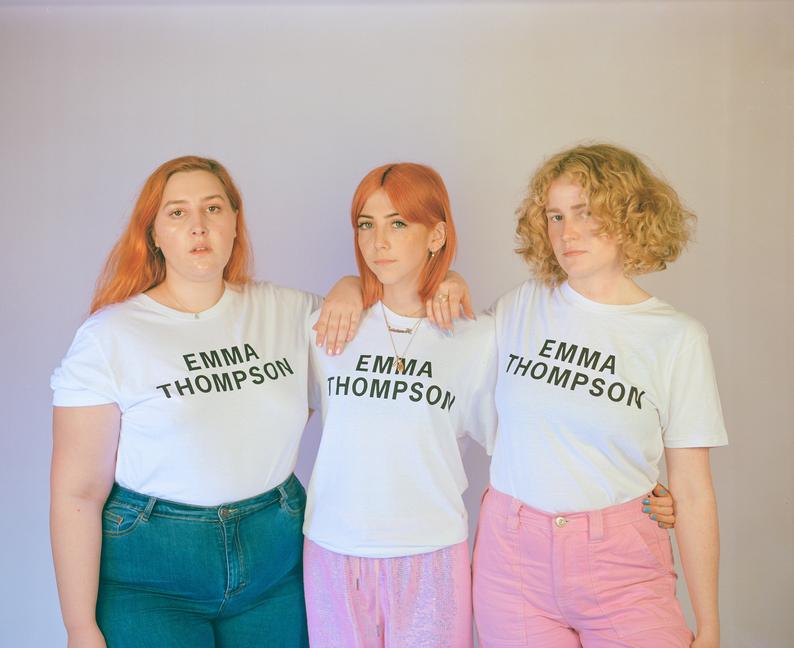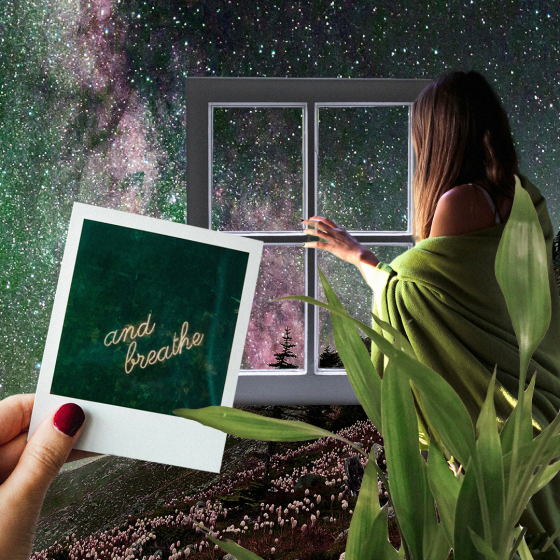If you are a young woman wanting to work in film, as an actor, director, writer, critic or otherwise, you are probably already painfully aware of the statistics. Despite a small increase in the percentage of female leads and directors over the last couple of years, film seems to still be predominantly a boys’ club. A recent study showed that independent films this year and last employed twice as many men as women in key behind the scenes roles like directing, producing, writing and editing.
It was with these expectations that I slowly, tentatively entered the world of film criticism this year. I was surprised (and relieved) to find that while the statistics are certainly true, there is a strong community of women who are challenging the status quo, and working to achieve better representation and inclusivity. I spoke to some of the women about their experiences and whether or not the industry is actually changing.
Hannah Woodhead, film critic and associate editor at movie review magazine Little White Lies, is very vocal about the need for the industry to be open to more diverse, young talent. From helping young writers who are just starting their careers, to calling out problems like the lack of female voices in criticism, Hannah’s approach is very different from the gatekeeping attitude of a lot of professionals in her position. Instead, she has a very open-door policy: as we were talking, she literally made the gesture of opening an imaginary door and shoving people through it. She recognizes that the industry is hard to get into, and because of that, the people who make it are very protective of the position they’ve earned. But she argues that that’s also why people who have those positions should use their power to make the industry better, instead of continuing to be needlessly competitive.
This is tricky to do when outdated, patriarchal ideas and belief systems still preside when it comes to women in film. Some editors seem to think that all women’s voices are the same, which sometimes means that if one woman gets a job, another one won’t. What to do about this disappointing fact? Affirm your own personal voice, make yourself known for what you’re passionate about, and be proudly promoting what makes you different from everybody else. According to Hannah, the best critic is ultimately the one that shows perspective and who is not afraid of wearing their heart on their sleeve. After all, we agreed, even if film can sometimes feel like a trivial escape, it can also be political, and a means for change: it’s a lens through which it is possible to filter reality, and see beyond the film itself and into the mechanisms of society. Thus, any change made here can have a significant impact on the rest of the world.
A few months ago, after publicly pointing out that Captain Marvel, a film heavily marketed to women, had been largely reviewed in major publications by white men, Hannah received hundreds of comments, a lot of them containing insults and accusations of “sexism” and “racism” and coming from – you guessed it – white men, who spectacularly missed the point and proved it all at the same time.
Hannah responded to this outburst of negativity by creating a thread of female and non-binary reviewers, amplifying their voices and ignoring those of Angry Men, neatly pinpointing the issue and dealing with it in the most constructive way.
Once you grow a thicker skin, and learn to shut out the trolls, there is a lot to be excited about in current film criticism, and Hannah is very positive about the future of the industry. Young talent is emerging, and with it new platforms are born almost every day to make space for it – slowly but surely, new voices are finding their way to big mainstream outlets, and it looks like things are finally changing.
A similar feeling is shared by Louisa Maycock, co-founder of Girls on Tops, who is literally putting talented women at the forefront of conversation by boldly printing their names on t-shirts. Her creations have become a staple at festivals, screenings and events around, in and out of London (Tracy Letts wore a “Greta Gerwig” t-shirt at the TIFF premiere of Lady Bird!) as well as conversation starters, forming a sort of community all of their own. For this painfully shy writer, they’ve been a lifesaver at networking events full of strangers, where finding someone wearing the same t-shirt as you can be the basis of a new friendship.
Louisa came to be part of this world almost by chance, thanks to a simple idea she and her friends had after watching 20th Century Women and seeing Greta Gerwig wearing a t-shirt that read ‘Lou Reed’. Starting as a self-defined “outsider”, Louisa and her t-shirts have become an active and integral part of the film community: the reception has been warmer than anyone anticipated, and just 2 years after the beginning of the project she is running a successful company by herself (despite not having any background in business) and receiving endorsement by the same people she is celebrating with her t-shirts. And it doesn’t end with t-shirts: she is using her platform to actively promote and finance young women’s work, both by contributing to the funding of female-directed films and by creating the blog READ ME.
READ ME, edited by Louisa herself together with contributing editor Ella Kemp, was conceived as a space for female critics, professional or not, to write something different, to explore at length ideas that most major publications might not have space for, and to receive guidance and support throughout the process. Louisa intends it to be a “stepping stone” for writers to move on to bigger things, and in the meantime contribute to a “patchwork” of unique voices from all over the world. It looks and reads differently from most criticism: instead of sterile analysis, READ ME features brilliant writing that engages with film and feelings, and recognizes the uniqueness and the value of personal intuition. In fact, when I asked her the most important thing she’s learned in these two years, Louisa tells me “trust your gut”.
Funnily enough, this is the exact piece of advice that Corrina Antrobus, founder of the Bechdel Test Fest, gave me. Corrina founded the Fest in 2014, after working in film marketing – using the knowledge gained in the industry, but mostly following her intuition and the feeling that something had to be done to shine a light on female representation in cinema, she started organizing screenings of films that have passed the Bechdel Test, in various locations across London and now nationwide. “Making it up as she went along”, she was surprised to see the reach and the impact of her project grow more and more, inspiring more feminist film clubs to be born. She never saw them as competition: “It was never about ‘they’re doing it, so we can’t’, and more like ‘they’re doing it: so can I’”. Feminism, after all, can take many shapes, and what matters to Corrina the most is for there to be an ongoing conversation between women, and between women and men, to make sure that things are done to regulate the imbalance that exists in cinema, just as much as in real life.
Speaking of men, they are an integral part of this conversation and shouldn’t be dismissed as part of the fix. “Unfortunately we have a severe disproportion of male vs. female directors, but we also need to celebrate the ones that are presenting women in a rounded, dynamic, messy way – we need feminist men” says Corrina. In fact, the latest film presented by the Bechdel Test Fest was Andrew Bujalski’s Support the Girls; a comedy/drama about the value of female solidarity written and directed by a man, who deals with issues related to the patriarchy with rare tact and empathy. As much as it celebrates female talent – in fact, the Fest is aiming to stimulate an open and constructive dialogue – Corrina has often been asked by men if they are “allowed” to come to their events, to the point where there is a section on the Bechdel Test Fest website to specify that the Fest is not just for women, but open to everyone: “Ultimately, what we all share is a love for cinema that I want to be projected onto my events, so that everyone feels welcome”.
Anna Bogutskaya, programmer at the BFI and festival director of Underwire Festival, told me a similar anecdote about a man waiting for his girlfriend outside of a screening but being “too afraid to go in”. Underwire is, in fact, a feminist festival which aims specifically to challenge the assumption that all films made by women deal with what is traditionally associated with “girl power”. While the festival celebrates female talent in filmmaking, it does so by showcasing a variety of films across different topics that are interesting in their own right and they’re made by talented women.

Anna’s vision for the festival, which she took over in 2015, is focused on the employability of these women: her goal is for Underwire to have a consistently wide reach and high quality, so that connections can easily be made between filmmakers and employers, and hopefully more opportunities open up for women in the industry. When we spoke about the tendency for women to hire more women, and why that so often happens, the answer was as simple as it is disheartening: “because nobody else will”. And yet this divide, and the assumptions associated with it, is exactly what needs to be erased.
Of course women don’t hire other women just based on their gender: while acknowledging that it’s a natural tendency to give a job to someone you identify with, Anna sees this as a step towards the resolution of the imbalance in the industry: “When you’re enjoying a privilege you don’t see things as clearly – being on the outside allows you to see the issue”, and to therefore to do something about it.
All it takes, after all, is for women to be given the same opportunities, including the opportunity to fail. But when we don’t, and all the hard work pays off, we’ll know it will be because we’ve earned it. Anna has been working in film in various capacities for years and, after all the effort made to achieve it, is confident in her position: “The good thing about working so much to get where I am now is that I don’t get imposter syndrome – I’ve worked my ass off and I know that any room I’m in, I deserve to be there”. And there, for Anna, is coordinating Underwire, running the horror collective The Final Girls, contributing to podcasts and, of course, curating seasons and events at the BFI, which recently hosted the Woman with a Movie Camera summit.
All the people I’ve spoken to for this article were at the summit, and then some. Hannah gave a talk about the “meme-fication” of feminism, for which Louisa was sat in the front row, surrounded by people wearing her t-shirts, while Anna was running around making everything work. Men and women came together to listen to talks about Time’s Up, female authorship, and female “thirst”, among other things. Things might not be changing as fast as we’d like, but something is definitely shifting. As Corrina put it, everyone there seemed to recognize each other, like, “You want to make this work too, don’t you? Let’s make it work together.”















